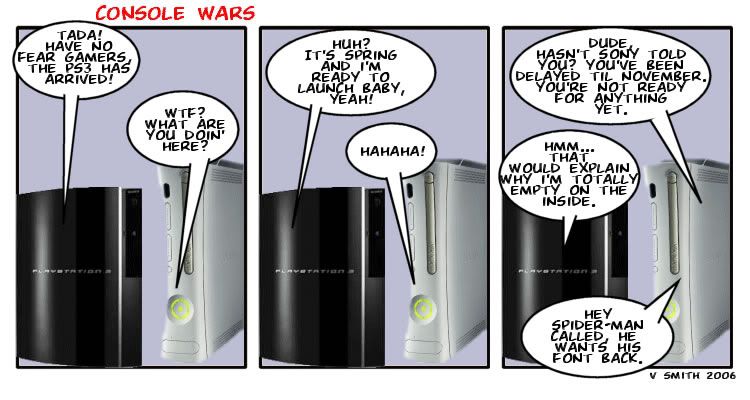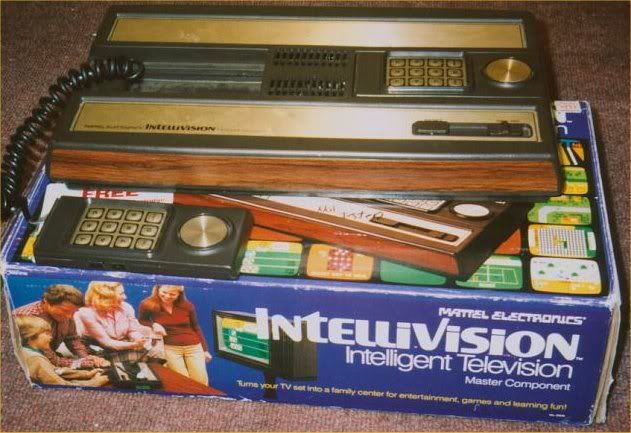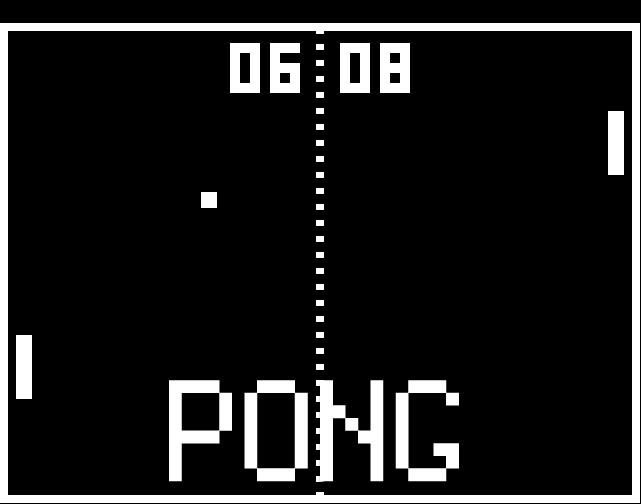 Games industry veteran Don Daglow talks to Snezana Nedeski about the first console wars and crash, and about the deaths and revivals of 1980’s game companies like Intellivision and Activision.
Games industry veteran Don Daglow talks to Snezana Nedeski about the first console wars and crash, and about the deaths and revivals of 1980’s game companies like Intellivision and Activision.
In the 1980s when you were working for Intellivision, the first Console Wars started. Can you tell us what it was like experiencing the console war while actually working for a console company? How did it affect the games industry?
Don Daglow: “You know it’s funny because it was all exciting and all fun. We had no conception of it. Both sides were winning. Both sides were making a lot of money and both sides were growing. They were selling more, growing more and making more than we were, but both of us were doing great.
For me it was very surreal. In ’79, I was writing games as a hobby but I was teaching middle-school. And when I heard about a job as a game designer at Mattel, I immediately applied and got hired. I was lucky to be at the right spot at the right time. So I’m going to work every day pinching myself because I’m doing games for a living. And I thought, I’m just a schoolteacher, when will they find out I’m just a schoolteacher, not a hacker/programmer. They’re paying me to make games!
And then we were competing with Atari. But there wasn’t this sense of hatred, it was just an, ‘of course our system is better than theirs’. And yes we had secrecy and it was important that ‘evil Atari’ sometimes came and took away some of the programmers from our teams. Of course the companies were doing things to each other, but we didn’t particularly feel hostility. So there was a rivalry but it was more like sport teams competing. You don’t really want to hurt anybody and everybody’s winning but you want to be the best.
The strongest memory I have is not so much about the wars against Atari, even though that was all we talked about. The strongest emotion I remember is going to work everyday thinking, how did this happen? How did I grow up from being a classroom teacher to doing this in like a year and a half? And I’m sitting in these executive meetings at Mattel, where I had to wear a coat and tie, and I’m just thinking; was I struck by lightning, am I dreaming? That was the dominant feeling for me because it just came out of nowhere, that this thing I loved to do suddenly became a career.”
 There were the console wars in 1983, then the video game crash occurred. Intellivision didn’t survive.
There were the console wars in 1983, then the video game crash occurred. Intellivision didn’t survive.
Don Daglow: Nobody in that time really survived.
Pretty much every console that was around at them time ‘died’.
Don Daglow: “The one that came through by name was Activision. Activision actually lasted for a few more years because in the US at that time there was a tax law that if you were a successful company and paid a lot of taxes and then you had some bad years, you’d get some of your tax money back. Activision lasted another 3 or 4 years. At one point I almost went to work for them, I was offered a job with them which I ended up not doing. So they survived for another 3 or 4 years because of this tax law and because of their good years.
But then they died and Bobby Kotick created the current, what we now know as, Activision. They bought the name and all the assets and Intellectual Properties. And I think they took 4 employees from the old company, with which they formed a completely new company. So they were reborn.
Just like Intellivision was reborn twice. Because the old one was sold off when Mattel, the toy company, had almost gone out of business. We had started out with 5 people dedicated to Intellivision. The whole company I think was about 35. So then we grew from 35 to 1200. this was from late 1980 to middle of 1983. Two years later, Mattel sold off what was left of Intellivision to a guy who had been the Marketing VP and four jobs went with him. So it went from 35, to 1200, to 4 in a grand total of 3 years. And he kept going for about five more years. We had a bunch of games that were half-way done. So he paid the programmers a little bit of money to get them to finish the game. And then he went out of business. And then, a few years after that, one of the old programmers went back and for next-to-nothing bought the name of Intellivision, logo’s, the right and all the properties and formed Intellivision Lives as a completely new company. But the old Intellivision really did die.”
So you didn’t take the job at Activision at the time, and the industry was crashing, but you were recruited by EA Games.
Don Daglow: “I was so lucky. The executives get told that the whole industry is dead and doomed. We had been giving oaths of loyalty, because they wanted us to swear our loyalty. It was like joining the military. And I was like, I don’t intend to go, I want to try and fix things and make it better, I guess I’m loyal, yes. And we had this new president who gave big speeches. And then we got the word that it’s all going to go, and that we’re released from our oaths of loyalty. ‘But you can’t tell the teams! Only the executives can know about it’. So much for his speeches.
And I called a meeting with my team and I just talked about how bad things were and about how we used to be able to sell things, and now there was nothing we could sell. And I kind of repeated myself, which they weren’t used to hearing in a meeting. And one of the guys started to get what I was trying to do. We had already had two waves of lay-offs, these teams that we had lovingly built were starting to fall apart. Awful. So he said a thing like; ‘so what you’re saying is that it might not get better?’. So I told them I had to go to a meeting and that they could keep on talking about it without me, cause I had seen that he started to get it. And I walked out of the room and they figured out what it was that I was trying to say. And my VP knew what I was doing because he was as disgusted as I was that only the executives get to know. I technically did not disobey orders.”
At Stormfront Studios you made the first 3D RTS, Stronghold. A pioneering game. Somehow, you’re one step ahead of the competition. How do you pull it off?
Don Daglow: “A programming trick, that’s where it started.
The first time I saw ‘Les Miserables’, when they’re marching with the big flag on the turn-table and the wind is blowing because of the big fan on stage. And it looks like the stage is so huge and deep and there’s all this emotion and music and everything. And really, that turn-table isn’t very large. And there weren’t that many people marching on the turn-table. But the signing, the music and the set design and the angle at which you can see the theatre made it feel so much bigger. And so much farther, yet so much closer.
So I started thinking about it. And we couldn’t do real 3D, just fake 3D. So what we did, we drew in bitplanes. You could use perspective to create a sense of depth and distance. And that can be done mathematically in terms of scaling. And so I pitched that idea to the guys and everybody got excited about it, so that’s how that happened.”
You were there when it was just Pong in 1975. You’ve seen the video game industry change. Is it possible for you to briefly describe what has changed?
Don Daglow: “Before Pong, all we had was text. Even the idea of what is now Pong was foreign to us. So there was a jealousy of admiration for that technology. And then I actually got in to play in that world and from then it feels like one big continuum of one constant speedy change. Everything changes faster now. The 80s were faster than the 70s, the 90s were faster than the 80s, and so on. Which is actually a good thing because it keeps making things more exciting. And you have to learn new ways to do things, which means you can’t just keep doing things the same way.
Whatever we’re doing today will seem pale by comparison [in the future]. Right now what we’re doing is exciting. So we get the joy of the present and the mist of the future.”
 When you started your career in the games industry, you must have speculated about what would become possible.
When you started your career in the games industry, you must have speculated about what would become possible.
Don Daglow: “Oh, we underestimated it all so wildly. First of all, between 1971 and 1975 the idea that you could have a computer in your house? Yeah right, a computer small enough that you can afford to put it in your house. Every time that I’ve assumed how things will evolve in terms of technology, the changes have always been bigger and faster than we have assumed. So now I just always assume it’s going to be bigger and faster. The principle that we have to abandon the assumption that the way we do it now is okay; what we’re doing now is okay for now. But as soon as possible we’re ready to do something faster, better, more complex, or just different. The Wii is not faster, not more complex. It’s less of everything, but it’s more engaging. There’s not just better resolution, better hardware, better graphics. It’s not just objective; it can be subjective too.”
Thank you for your time, Don. And good luck with your future ventures!
Don Daglow is currently CEO of his own company: Don Daglow Interactive Entertainment, where he advises other companies and teams, helps with design or production, and much more.


Really great writing. Honestly.